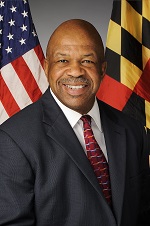 |
| Martin Shkreli |
Vocal pricing critic Rep. Elijah Cummings (D-MD) has his chance to put some pharma execs in the hot seat. Former Turing Pharmaceuticals CEO Martin Shkreli, who kicked off the latest brouhaha with an unapologetic 5,000% price increase, and Valeant Pharmaceuticals' ($VRX) interim CEO Howard Schiller are expected next week at a congressional hearing on drug prices.
The House Committee on Oversight and Government Reform on Jan. 26 will take a hard look at Turing's 5,000% price increase for toxoplasmosis drug Daraprim and Valeant's price hikes for heart meds Isuprel and Nitropress, which the company jacked up by 536.7% and 236.6% after buying the products. An attorney for Shkreli declined to comment to Reuters, and a Turing spokesperson had no immediate comment.
Schiller, who took the reins at Valeant as interim CEO early this month, is looking forward to testifying, a Valeant spokeswoman told the news service. Valeant is continuing to cooperate with the ongoing congressional investigation, the spokeswoman said. The company drew fire from some lawmakers last year for failing to produce all the information and documents requested.
The hearing marks a win for Cummings and his group of drug-price warriors. Earlier this month, Cummings and House Oversight Chairman Jason Chaffetz sent requests to Valeant, Turing and Shkreli, asking for documents that showed revenues for Daraprim, Isuprel and Nitropress and any communications from the CEOs about the drugs, giving the companies until Jan. 22 to submit the requested information.
Turing complied by handing over tens of thousands of documents to congressional investigators ahead of the hearing, an unnamed Democratic committee staffer told Reuters. Valeant is also trying to appease lawmakers by forking over information related to price increases. The committee will review another batch of documents from Valeant regarding price hikes in the near future, according to the Reuters story.
 |
| Maryland Rep. Elijah Cummings |
The hearing comes amid mounting political pressure over drug price increases. And lawmakers are getting creative in their requests for government action. Last week, a group of 50 members of Congress and two organizations sent separate letters to the National Institutes of Health (NIH) and the U.S. Department of Health and Human Services (HHS), asking the NIH to use its "march-in rights" to bypass patents on pricey branded meds developed with federal funding.
Although the NIH has said that it would take "extraordinary" circumstances for it to open such drugs to early generic competition, the recent surge in drug prices fits the bill, the lawmakers and nonprofits said in their notes. Even though the NIH hasn't acted before, a decision on drug pricing could send an "important signal" to the industry, Aaron Kesselheim, associate professor of medicine at Harvard Medical School, told FiercePharma. "These are important issues that patients are struggling with. There may be some symbolic importance to more attention to this area."
And apparently, the mere threat of government price controls could be enough for some companies to bring down prices. A new study from economists at the Massachusetts Institute of Technology and the University of California, Berkeley, found that drugmakers hold off on raising drug prices amid political pressure.
The economists point to the 1993 Clinton health reform plan, which included government price controls such as giving Medicare the power to negotiate on prices. Pharma stock prices fell as much as 50% when Hillary Clinton's "Health Care Task Force" was considering new drug price regulations, The New York Times reports. And more than 20 drugmakers during the same period promised to keep drug price growth at or below inflation.
- read the Reuters story
- get more from the NYT (sub. req.)
Special Reports: 10 big brands keep pumping out big bucks, with a little help from price hikes | The top 10 most expensive drugs of 2013